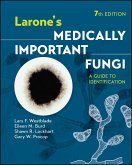A renaissance of virus research is taking centre stage in biology. Empirical data from the last decade indicate the important roles of viruses, both in the evolution of all life and as symbionts or co-evolutionary partners of host organisms. There is increasing evidence that all cellular life is colonized by exogenous and/or endogenous viruses in a non-lytic but persistent lifestyle. Viruses and viral parts form the most numerous genetic matter on this planet.
Viruses have long been considered as disease causing pathogens with often epidemic consequences and major enemies of living organisms. Viruses are now considered to play major roles in the evolution of life. Because they have genes that are not found in any cellular organism they seem to be remnants of early stages of life on earth. Besides their disease causing features and actions as genetic parasites viruses have lifestyles that are clearly symbiotic and even symbiogenetic. Increasing empirical data suggest that some viruses such as endogenous retroviruses and non-retroviral RNA viruses and even DNA viruses prefer cellular genomes as habitat. They determine genetic host (group) identity and genetic host features. Viruses and virus-related modules such as mobile genetic elements and other repeat sequences identified in intronic regions of host genomes play important roles in gene regulation and genetic content (re)arrangement. This book exemplifies some astonishing key features of viruses acting as essential agents of life.
Viruses have long been considered as disease causing pathogens with often epidemic consequences and major enemies of living organisms. Viruses are now considered to play major roles in the evolution of life. Because they have genes that are not found in any cellular organism they seem to be remnants of early stages of life on earth. Besides their disease causing features and actions as genetic parasites viruses have lifestyles that are clearly symbiotic and even symbiogenetic. Increasing empirical data suggest that some viruses such as endogenous retroviruses and non-retroviral RNA viruses and even DNA viruses prefer cellular genomes as habitat. They determine genetic host (group) identity and genetic host features. Viruses and virus-related modules such as mobile genetic elements and other repeat sequences identified in intronic regions of host genomes play important roles in gene regulation and genetic content (re)arrangement. This book exemplifies some astonishing key features of viruses acting as essential agents of life.
"Viruses: Essential Agents of life ... is a great way to kick off the next 100 years of virology, with nary a reductionist thought to be found within its 427 pages. ... readers will find many exciting reasons to be a virologist (amateur or professional) at the dawn of the 21st century." (Welkin Johnson, Small Things Considered, schaechter.asmblog.org, January, 2013)
"It is a compilation of 19 chapters, each written by one or more experts, and each comprising an overview, or opinion or essay on a different facet of the general theme. ... this book offers a topically relevant compendium for biologists, evolutionary biologists, geneticists and molecular biologists interested in how viruses have contributed to host evolution and, perhaps, even to the origins of life on Earth." (Frank Ryan, Symbiosis, Vol. 60, 2013)
"It is a compilation of 19 chapters, each written by one or more experts, and each comprising an overview, or opinion or essay on a different facet of the general theme. ... this book offers a topically relevant compendium for biologists, evolutionary biologists, geneticists and molecular biologists interested in how viruses have contributed to host evolution and, perhaps, even to the origins of life on Earth." (Frank Ryan, Symbiosis, Vol. 60, 2013)








